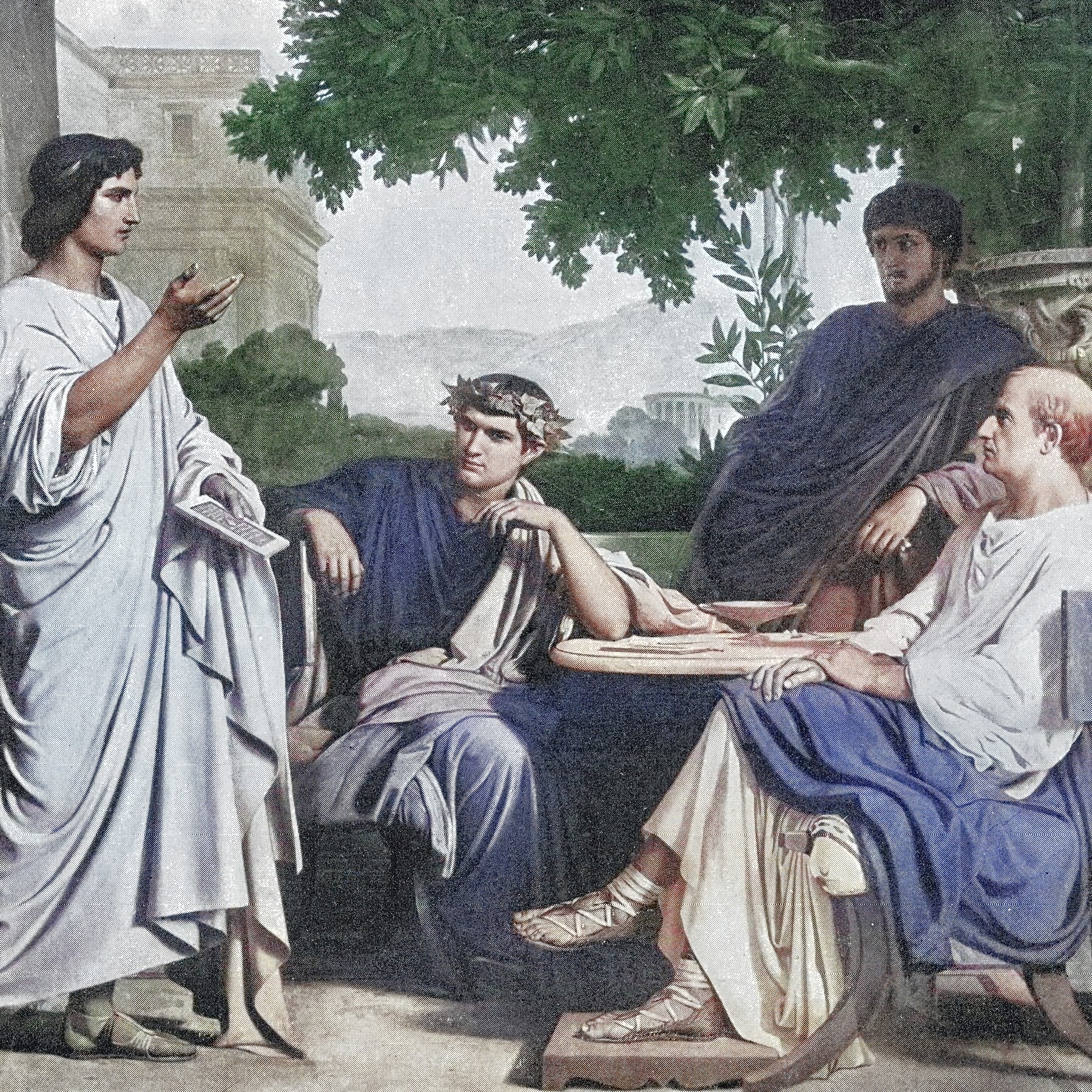I did not set out to be a CEO. As a farm kid from Iowa who liked to write poetry and paint, my plan had been to go into the arts. But as often happens in life, things got off track. I ended up in business.
I blame the farm crisis. If the economic dynamics of the 1980s had not unfolded the way they did, deeply affecting my family during my formative years, I likely would have pursued a career in the arts after getting my undergraduate degree in that field.

In a sea of buttoned-up aspiring financiers and management consultants, I often felt a fish out of water.
But having experienced financial challenges and uncertainty, I felt I needed more marketable skills in order to make a living. So even as I wrote poetry and showed paintings, I applied to MBA programs on the recommendation of some board members at the small nonprofit I ran. Shockingly, I was accepted at Harvard Business School.
In my business school class, I’m pretty sure I was the only poet and artist, or at least one of only a few creative types. In a sea of buttoned-up aspiring financiers and management consultants, I often felt like a fish out of water.
But my desire to learn was insatiable: How did this world of markets and money work? How did leaders influence others to follow them? What caused consumers to make purchasing decisions? I had so many questions.
Creative communication
Early on, I realized that this intense curiosity and my creative thinking and communications skills were, in fact, assets. Looking at business through a poetic and artistic lens, always questioning assumptions, gave me a different viewpoint than my numbers-driven accountant and engineer classmates.
While I envied their more analytic and quantitative skills – and ultimately made sure I surrounded myself with people who had those complementary talents – it was the creative skills I’d developed as an artist and writer that provided me with a competitive edge.
Today, when many of my business friends and colleagues discover I am a published poet in addition to being a CEO, they admit they don’t read or ‘get’ poetry, and they ask me what poetry really is.
I tell them it’s really just a form of storytelling, just like a book or article or even song lyrics. The word poetry stems from the ancient Greek world poieo, which means ‘I create’. And isn’t creating a vision and then communicating it an essential part of leadership?

To cut through the clutter in today’s busy world, CEOs must use language in increasingly expansive ways.
Unlike ordinary communication, poetry is an art form. Poetry uses language in a manner that is felt differently by its audience than it is with straightforward prose. And the feeling part matters. To cut through the clutter in today’s busy world, CEOs must use language in increasingly expansive ways, using multiple methods, platforms, imagery and sound to convey messages to stakeholders.
Ideally, poetry unleashes creative thinking in both writer and reader. The need to show or convey an idea through rhythm and imagery requires the writer to draw deeper into that creative well.
The poet asks: How do I best convey my inner world to the outer world, sparking emotion and understanding? The leader asks something similar: How do I best convey my inner vision to my team and the outside world? How do I see beyond the obvious? How do I tap into stakeholders’ feelings to persuade or influence – to help solve a problem or meet a need?
Embracing change
When I was younger, I thought that organizations could reach a place of success and maintain that position, but that was naive. Similarly, I once asked a poet friend of mine how he knew when a poem was done. He laughed.
“A poem may never be done,” he said. “It is your right as a poet to keep changing your poem as the world changes you.”
He spoke of the importance of revision, how poems are iterative, how poets constantly tinker with sounds and rhythms and meaning.
As a more seasoned leader, I now understand that organizations, like poems, are iterative, growing and evolving over time with constant revisions. Life’s rhythms shift; markets go up and down; people change. Even if you have achieved success, next year’s plan must also evolve.
CEOs must constantly iterate – revising, rewriting and trying out new versions of strategy or organizational structure.
Unfortunately, sometimes the day-to-day grind of leading operations and people can wear down even the most resilient leader. But poetry – in whatever form – can provide a new perspective on the world, refueling our energy, pointing out the joy in what seems mundane or everyday.

Leaders have been writing and reading poetry, absorbing inspiring verse and making impassioned, poetic speeches for millennia.
Whether presented in a traditional poem, speech or song, poetry can infuse life with beauty and meaning, reminding us that challenges and complicated emotions are all part of the shared human experience.
Being a poet and artist – and a woman – made me different from many of my business colleagues, but at a certain point I embraced those differences and stopped trying to downplay these authentic parts of myself.
I was inspired by other female leaders, and learned that in fact many business leaders were poets. Wallace Stevens, for example, one of the 20th century’s greatest poets, was Vice President of the Hartford Accident and Indemnity Company.
Leaders have been writing and reading poetry, absorbing inspiring verse and making impassioned, poetic speeches for millennia. For me, poetry has been a powerful tool to help navigate this lovely and complicated world, and in the end, it has made me a more creative, innovative, effective and authentic leader. Perhaps poetry could provide inspiration for you in your leadership journey as well.
In that spirit, I’ll leave you with a few lines from the ancient Chinese poet and philosopher Lao Tzu, written in The Tao more than 2,500 years ago, but just as true in today’s business world as ever:
A leader is best when people barely know that he exists,
not so good when people obey and acclaim him,
worst when they despise him.
Fail to honor people,
They fail to honor you.
But of a good leader, who talks little,
when his work is done, his aims fulfilled,
they will all say,
“We did this ourselves.”







